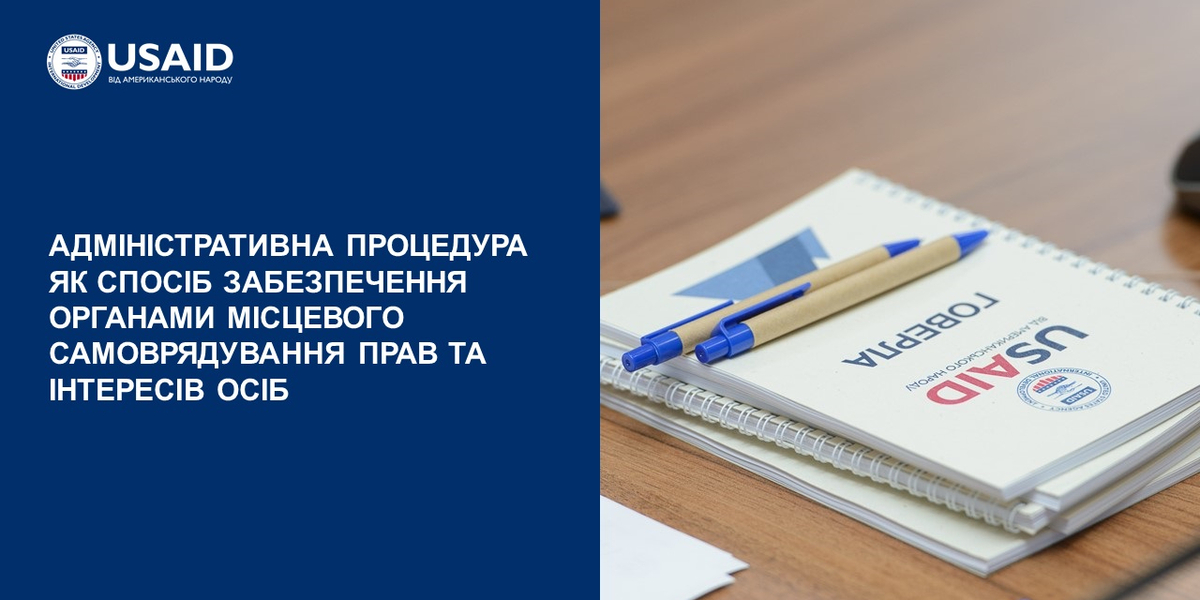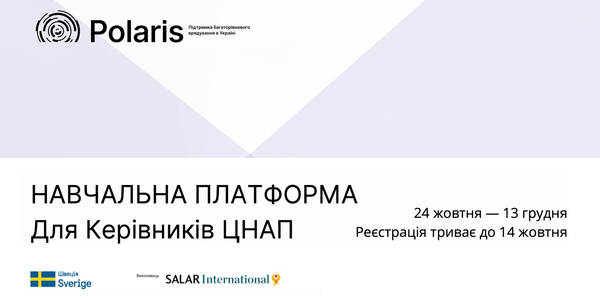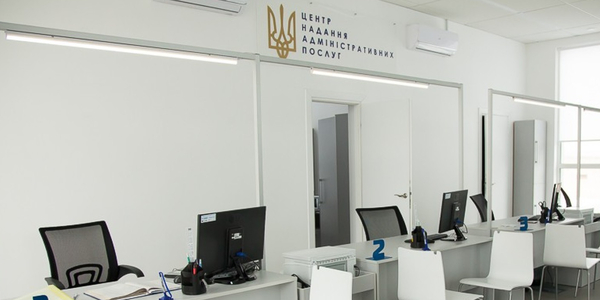
This publication describes, in particular, the notion of administrative procedure as per the Law of Ukraine “On Administrative Procedure” (to become effective on 15.12.2023), how it interrelates with administrative proceeding, administrative act, procedural actions and decisions, as well as how it affects securing the rights and interests of CTC residents.
The administrative procedure is important for local governance, because, on one hand, it defines the way for LG bodies to exercise their powers, and on the other -–it is a way to secure the rights, freedoms, and interests of people.
Under the Law of Ukraine “On Administrative Procedure (hereinafter – the Law), the term “administrative procedure” envisages the legally prescribed procedure of consideration and settlement of an administrative case.
The administrative body (including an LG body, LG official) is one of the subjects of the administrative procedure, that actually considers the case related to public and legal relations with regard to ensuring the exercising of a right, freedom, or lawful interest of a person and/or fulfillment by him/her of the obligations set by the law, protection of his/her right, freedom, or lawful interest.
Let us find out below, which powers an LG body needs to exercise to be treated as an administrative body as per the Law of Ukraine “On Administrative Procedure”.
When LG bodies/officials resolve specific cases on particular citizens or entities in various fields of relations, LG bodies/officials act as administrative bodies that adopt decisions, namely, on the following: issuing permits on placing advertisements, state registration of business entities, establishing social assistance and extra payments, approval of town-planning conditions and restrictions, issuing building permits, registration of place of residence, registration of marriages, births, and deaths, allocation of land plots, providing them into usage, etc.
The legal outcome of such actions as well as the administrative procedure itself, is the adoption of an administrative act – a decision or legally meaningful individual action adopted (conducted) by the administrative body, namely an LG body as well, to resolve a specific case and aimed at the acquisition, change, termination, or exercising the rights and/or obligations of a specific person (persons).
Important! An administrative act shall refer only to the external relations of an LG body/official with other individuals and/or legal entities. Therefore, internal organizational acts (even individual acts including those on HR work) do not constitute administrative acts.
Apart from that, if an LG body exercises powers and policymaking function related to setting rules, regulations for all individuals and/or legal entities on the CTC territory, neither a local council nor its executive committee (or other executive body) acts as an administrative body (namely when approving the local council or executive committee regulation, socio-economic development programs, local budget, rules of improvement etc.).
The Law gives the definitions of the “administrative procedure” and “administrative proceeding” notions. Thus, when resolving administrative cases, it is important for LG bodies to understand the meaning and interrelation of these legal terms.
As mentioned above, an administrative procedure is the procedure of consideration of an administrative case, while an administrative proceeding is a set of procedural actions conducted by an administrative body, and procedural decisions taken based on the consideration and resolution of a case, that are ended with the adoption and, in certain instances, fulfillment of an administrative act.
Thus, an administrative procedure is a legally established and regulated procedure, a kind of a pattern of actions on the consideration of administrative cases, and, accordingly, each administrative proceeding is carried out in frames of a certain legally defined procedure at the same time being its practical implementation.
In an administrative procedure, one should also distinguish the “procedural action” and “procedural decision” notions. A procedural action is an action of an administrative body, conducted during the consideration of a case, but not resolving such a case in substance; a procedural decision is a decision of an administrative body adopted during the consideration of a case, but not resolving such a case in substance. For instance, procedural actions include actions of LG bodies/officials on obtaining additional confirmation documents, while procedural decisions are those on recalling an official, on the results of consideration of petitions, on leaving an application without movement etc. There can be a substantial quantity of procedural actions and decisions within one administrative proceeding, while there can be only one (or several) administrative act(s) that resolve a case in substance. Thus, the adoption (an in certain instances – implementation as well) of an administrative act constitutes the completion, the legal outcome of an administrative proceeding.
Diagrammatically, the interrelation between an administrative procedure, administrative proceeding, procedural actions, and procedural decisions under the Law can be shown as follows (see table below):
|
Administrative procedure
|
Administrative proceeding
|
|
Administrative act:
|
|
Concluding the above, it is worth stressing that in already five months LG bodies will be applying the norms of the Law of Ukraine “On Administrative Procedure” in their day-to-day activity, commencing administrative proceedings, conducting procedural actions and adopting procedural decisions, which will lead to the adoption of administrative acts. Therefore, the relevant provisions of this Law and peculiarities of their application need to be studied to enable their proper and quality application.







